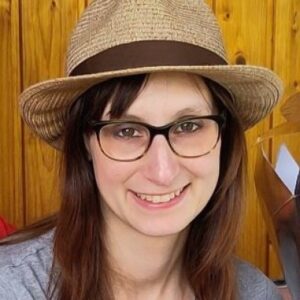TUXEDO Has Learned How to Make and Market a GNU/Linux Computer

CEO Herbert Feiler founded TUXEDO Computers GmbH in Bayreuth, Germany, in 2004. Today, the company is based in Augsburg. However, it took some time to develop the strategy that would make TUXEDO a successful vendor specializing almost entirely in computers with GNU/Linux preinstalled.
Company Basics
TUXEDO’s foundation story is classic: as a young man, Feiler installed Linux the hard way (from scratch) and wrote up his experiences in a blog posting. Readers posted comments asking for a way to get Linux pre-installed. Instead of recommending companies, he decided (as an entrepreneur already in that space) to start making and selling computers with Linux preinstalled himself.
Today, TUXEDO operates with a distributed team: While the headquarters – including back office, development, and support – is based in Augsburg, additional staff work directly with manufacturing partners in Taiwan as well as at the production site in Leipzig. Although most clients are located in Germany, Austria, and Switzerland, TUXEDO’s reach extends across Europe and beyond.

Annika Litzel, PR and marketing manager at TUXEDO Computers
According to PR and marketing manager Annika Litzel, uses for TUXEDO range from everyday office work to “coding and programming, CAD design, firewall development, and development for high-performance clusters, virtualization, and networks.”
As the name TUXEDO suggests, their claim to fame is making high-quality computers that, like a good tuxedo, fit the customers’ needs superbly. (Tux is, of course, also the Linux mascot.) Achieving this goal requires testing large amounts of hardware.
Their computers are also easier to customize than most mass market systems. Content manager Christoph Langner says that they don’t glue in their parts, so that replacing a battery or other component is a simple task. Their Tomte tool automatically checks computers for missing drivers and other necessary software.
The number of Linux desktop systems in Germany has been growing at a small but steady pace recently (see this statcounter graph).
Lessons Learned
Like other GNU/Linux distributions, TUXEDO based their distribution on Ubuntu, whose Long Term Support (LTS) program demonstrates its reliability. However, Langner explained that TUXEDO made custom alterations because it needed more control over the testbed for its hardware testing. Their modified distribution is called TUXEDO OS. (Litzel says that their devices have also been used for reference tests by other distributions.)
In addition, having their own distribution allows TUXEDO to adopt what they consider the best changes in Ubuntu, KDE, Firefox, and other software, and to eschew changes that are unpopular in their community, such as Snap packages and weakened privacy settings in Mozilla’s Firefox.
TUXEDO deliberately refrains from pursuing Ubuntu certification. According to Langner, the main reason is the desire for maximum flexibility and sovereignty: any customizations or developments would have to go through Canonical, which would significantly limit their independence. Instead, TUXEDO relies on in-house development to retain full control over all processes and data. This approach allows them to respond quickly to changes, support a wide range of distributions, and remain fully independent from third-party companies whose handling of data and priorities may not align with their own.
By using the TUXEDO distribution in their products, the company can move much faster than if it had to get its drivers and other changes accepted upstream by either Ubuntu or the Linux kernel. Langner says that their own kernel modules include fan control, power profiles, and keyboard backlighting, as well as drivers. Among their interesting innovations is a cooling management tool called Aquaris.
Of course, they do eventually integrate their work upstream, to avoid duplicating work and to ensure broad compatibility across distributions—and that has required a lot of learning as well.

Content manager Christoph Langner
For instance, they made a rookie error at the beginning, licensing their work under version 3 of the GNU General Public License. This was a natural choice to make, because version 3 is the current version. It was the wrong choice for Linux, though!
The Linux kernel team never moved from version 2 to version 3, partly because like many free software projects, they allow each developer to keep the copyright over the code donated. It would have been impossible to track down tens of thousands of developers and get the necessary paperwork from each to migrate to version 3. In addition, both Linus Torvalds and other kernel developers had philosophical disagreements with changes made in version 3.
So TUXEDO relicensed its drivers and other software under version 2.
Among their many software development efforts, they’re creating an ARM notebook and have received positive feedback for the changes they submitted to the Linux kernel.
Working with the Linux kernel community is an art, but TUXEDO has had a decade of practice, and Langner says the process is ongoing.
Participation in Other Communities
TUXEDO is a patron of the KDE desktop project (which is also based in German), and has offered office space for meetings and a sprint by the KDE team, as well as meetings of local Linux User Groups.
TUXEDO also provides test hardware to the Linaro ARM-based development project.
Most input from customers comes via social media, notably Reddit and Mastodon.
Finally, TUXEDO is an LPI partner. Anyone who buys a TUXEDO computer gets a discount on LPI certification.
In conclusion, TUXEDO has found its own way to build a business around Linux. (They offer Windows as well, because many customers need to run Windows applications.) By focusing on Linux from the beginning and concentrating on providing the highest quality experience, they have created a significant niche for their business.
